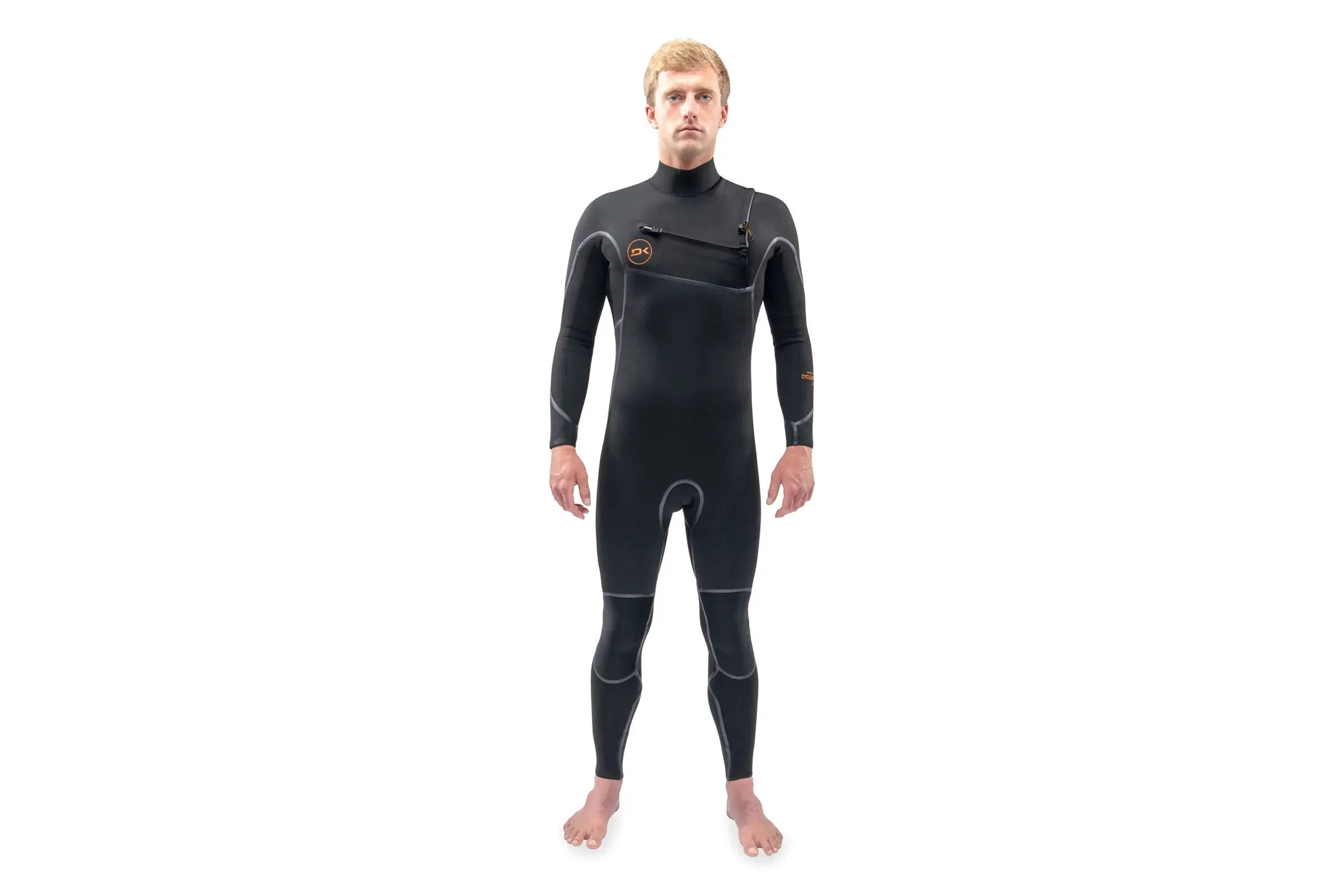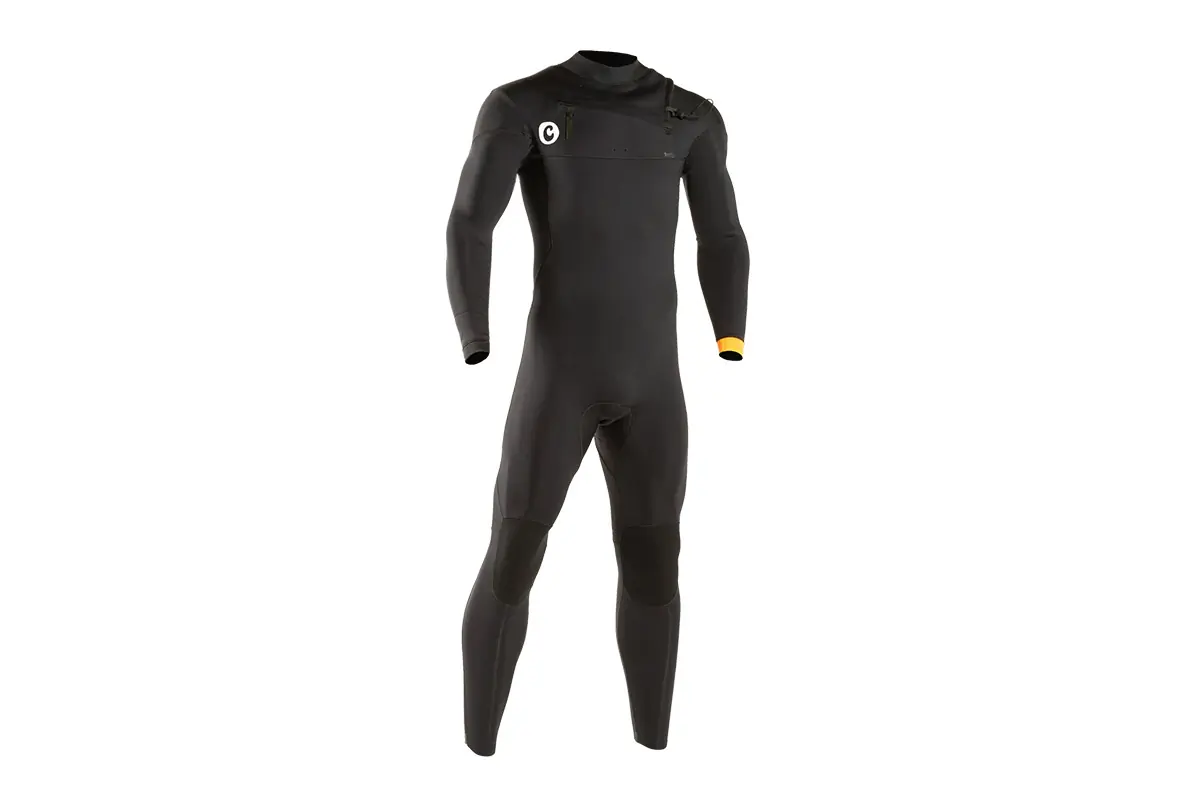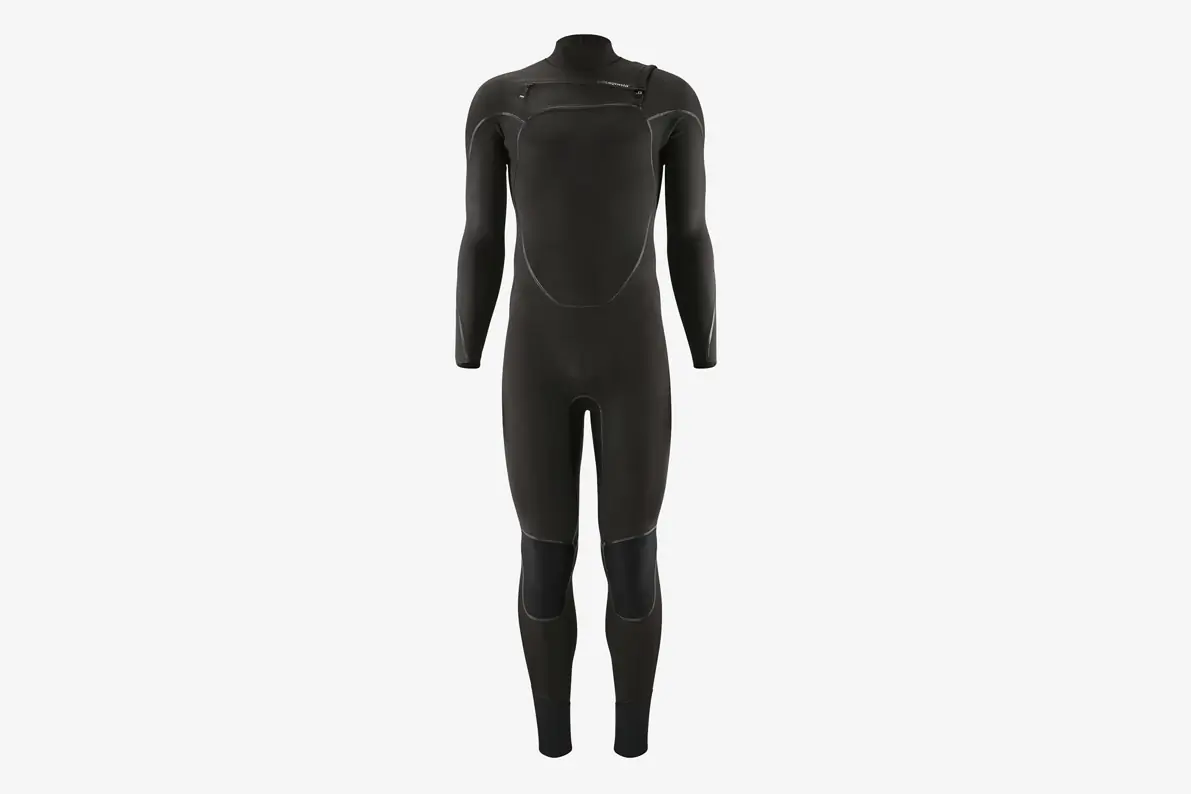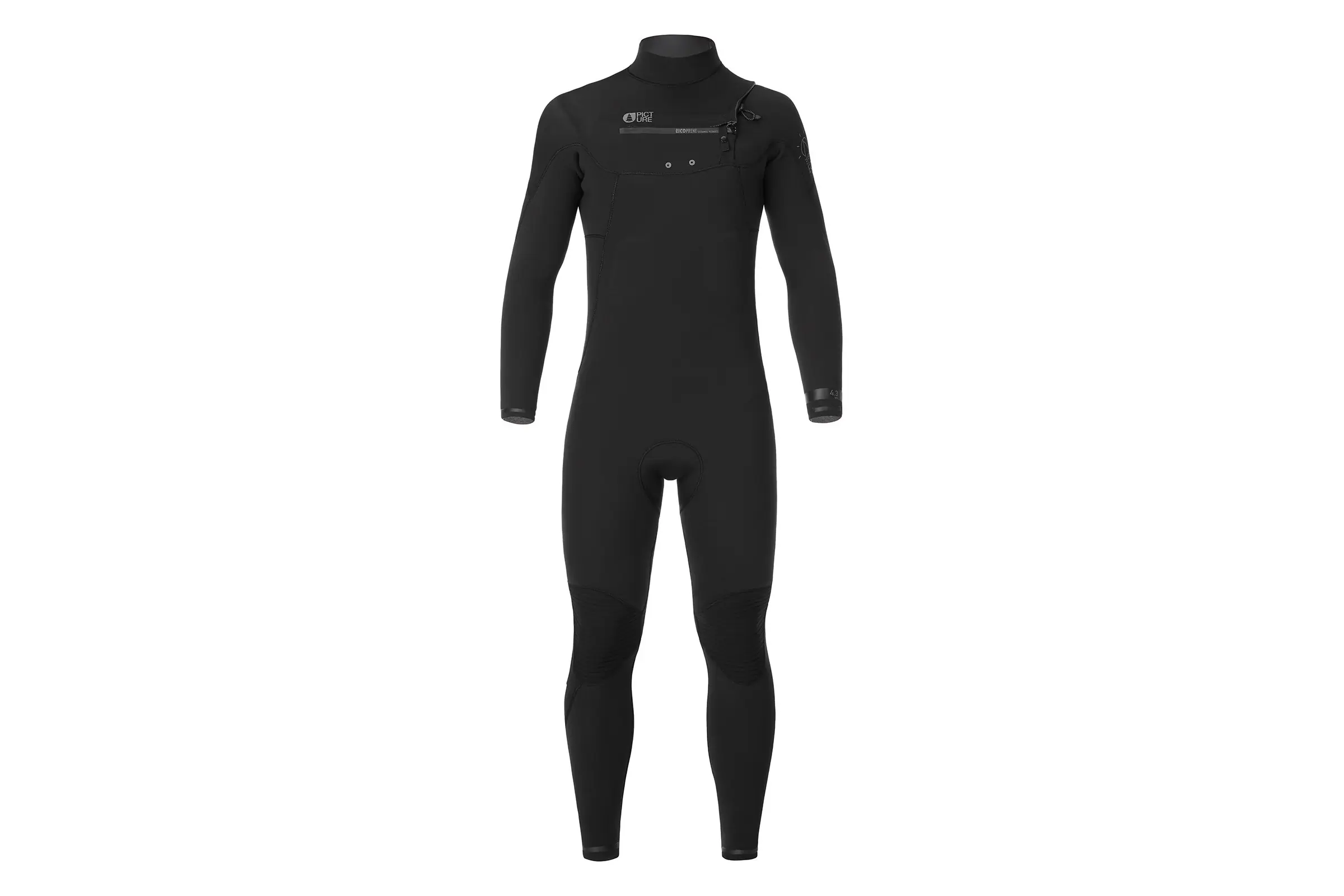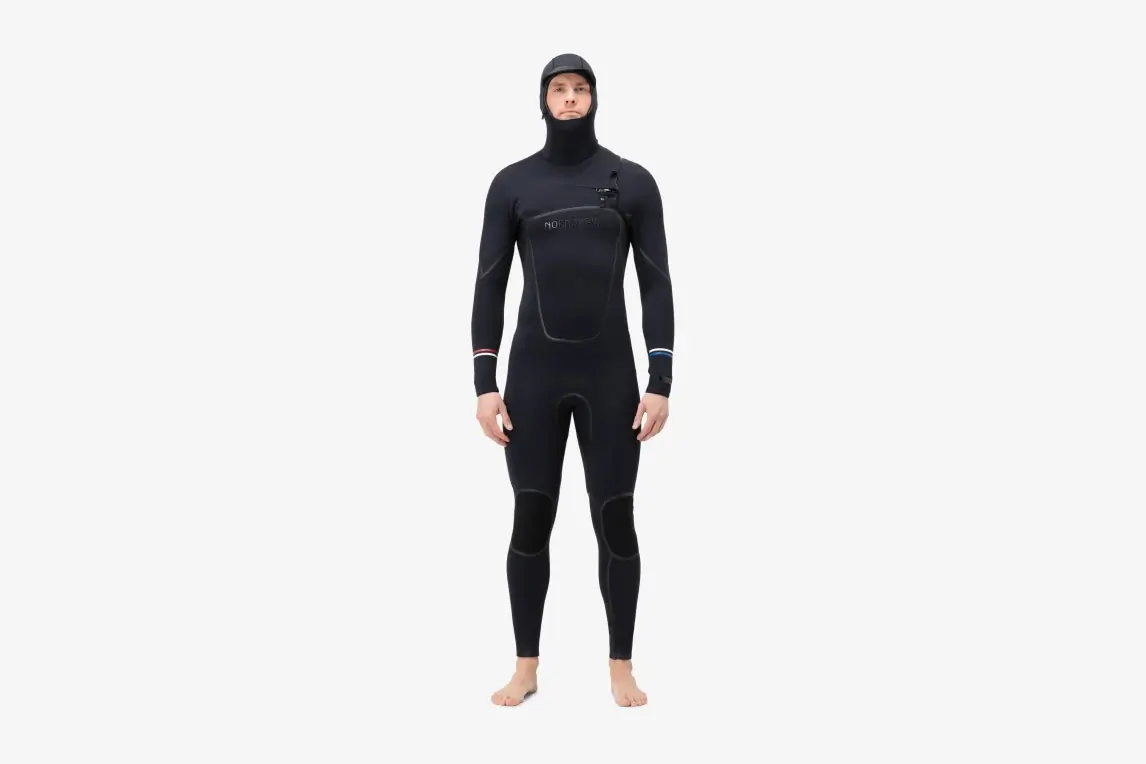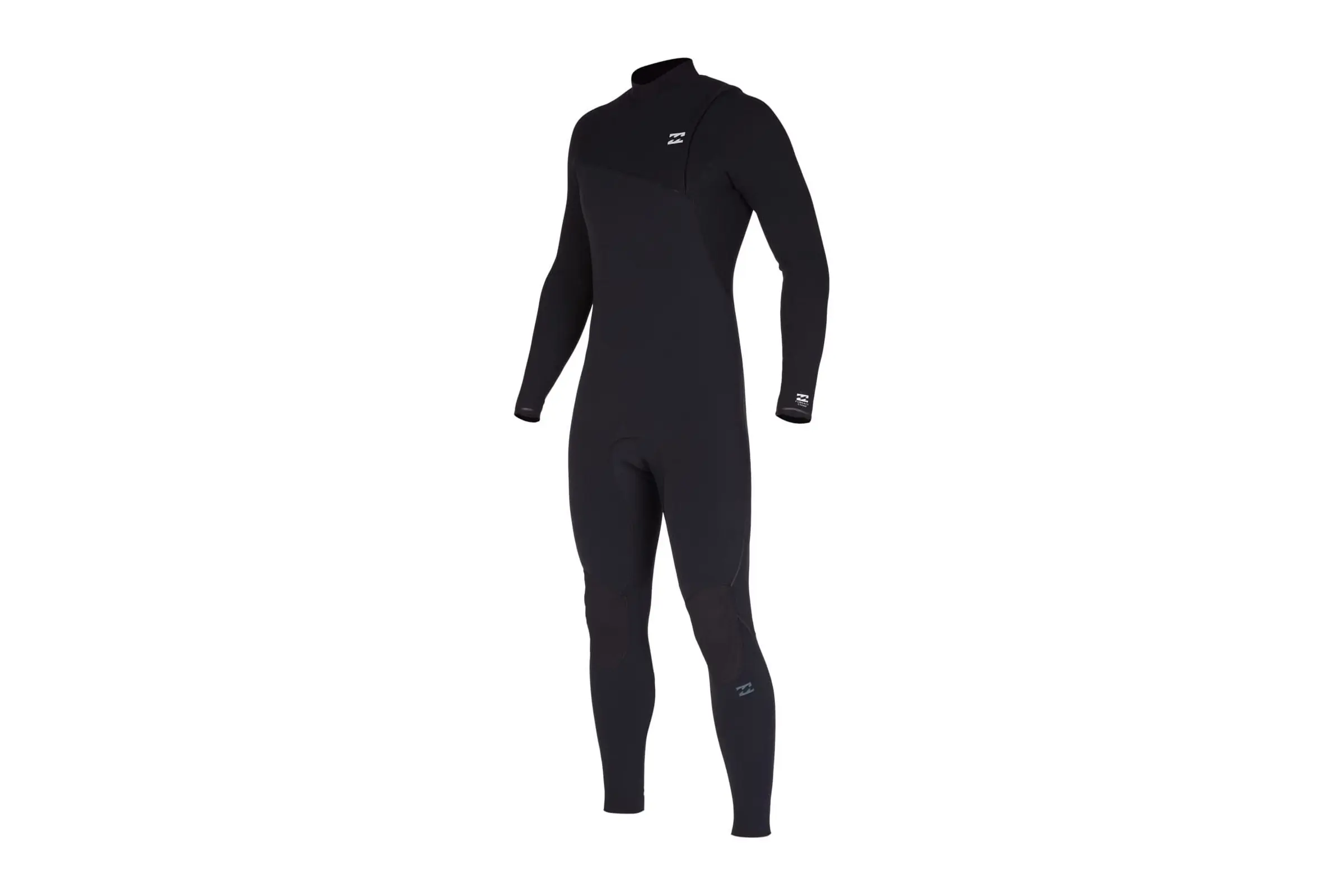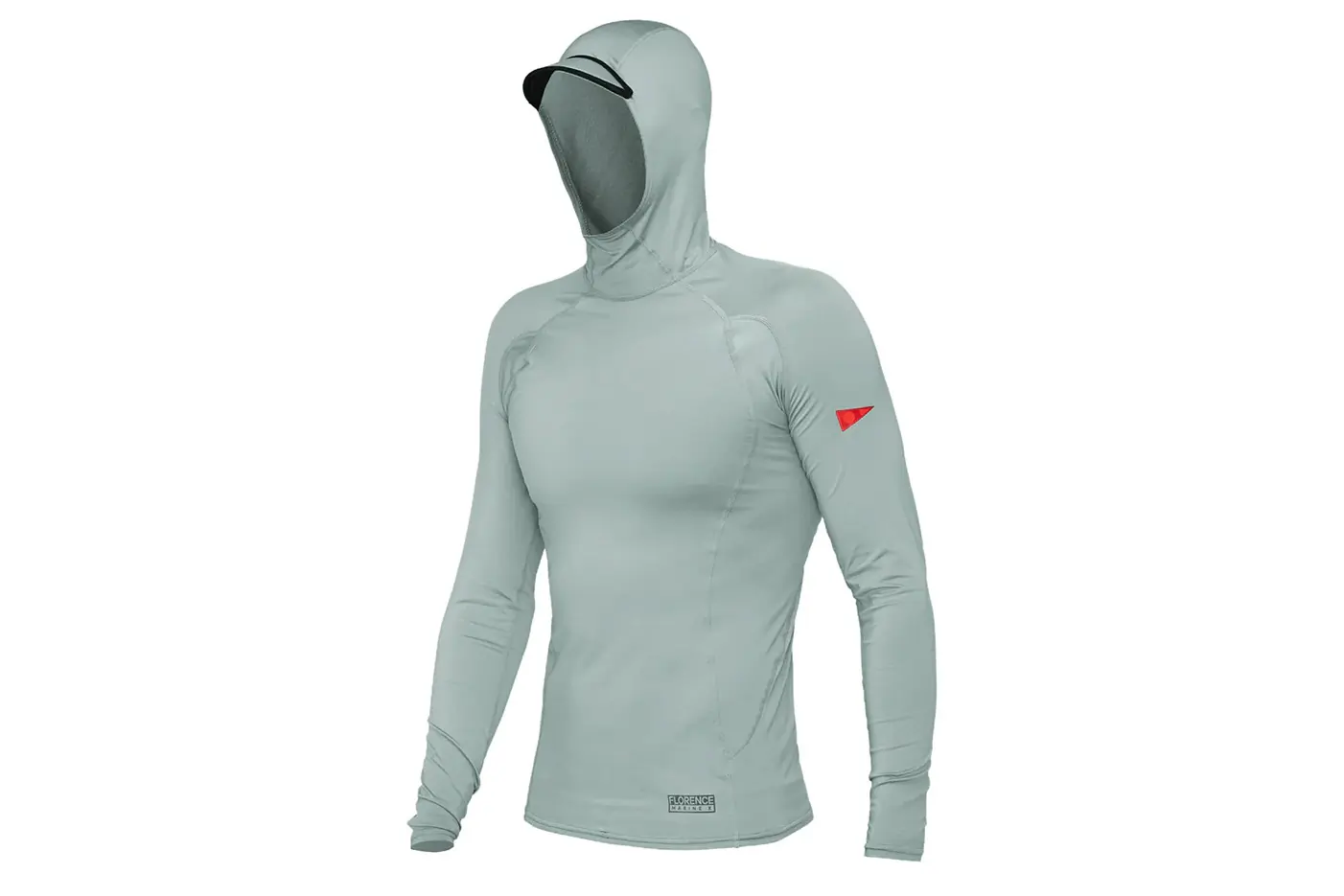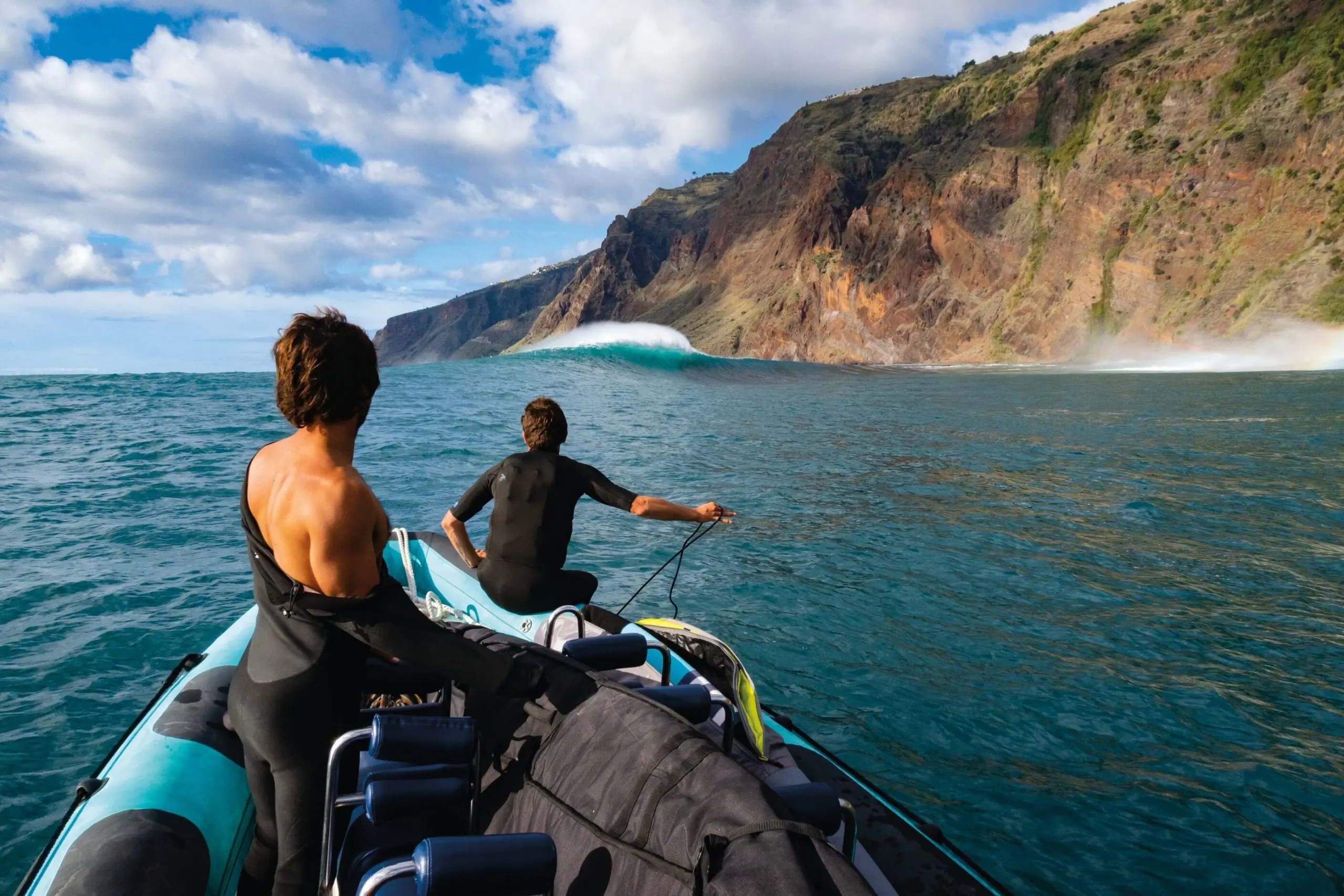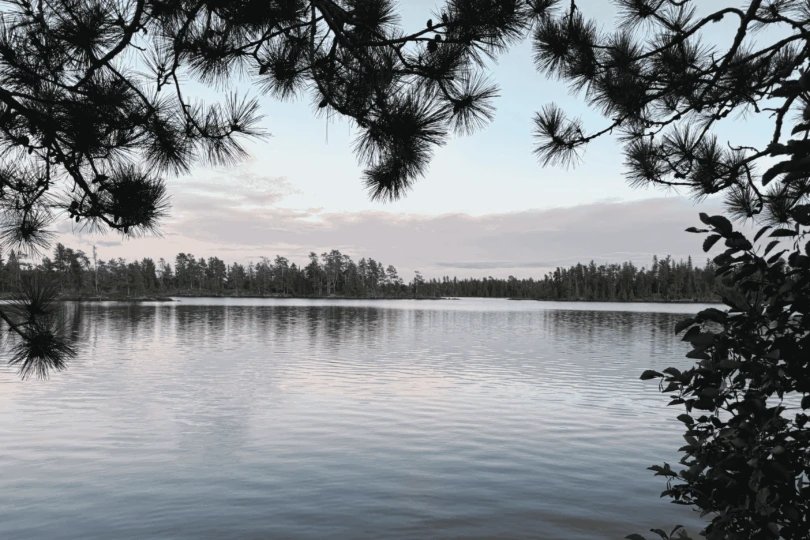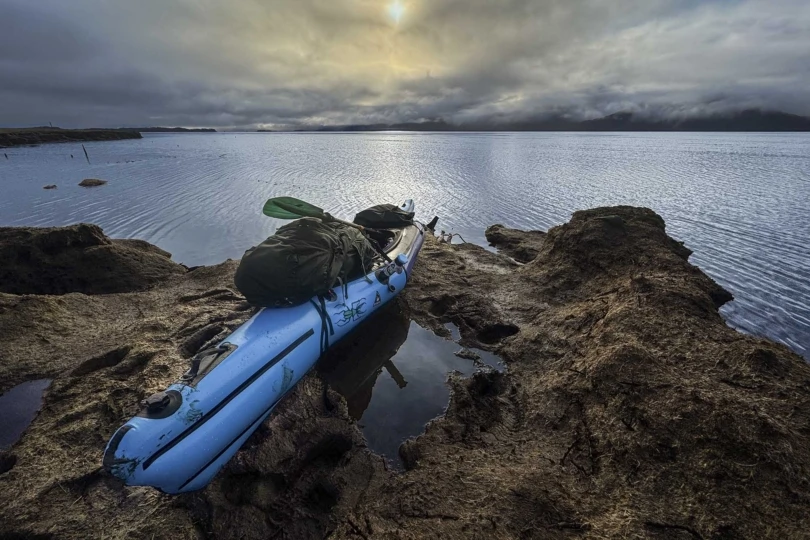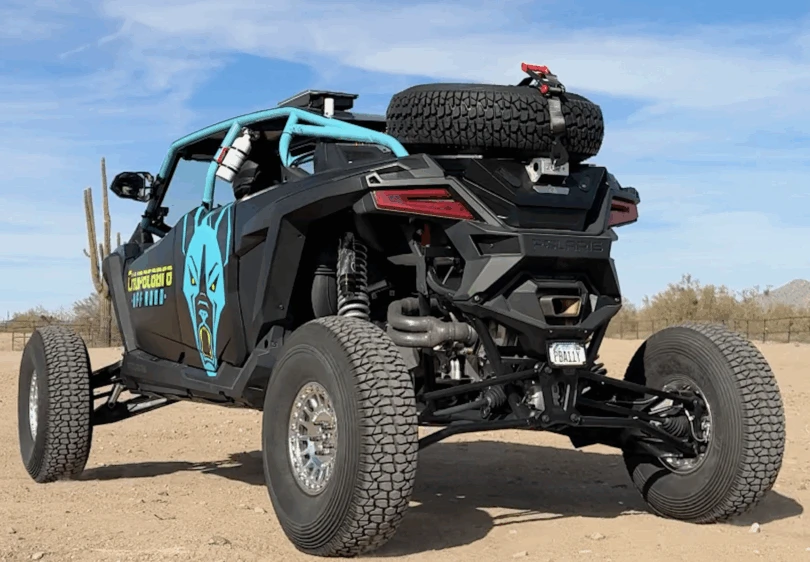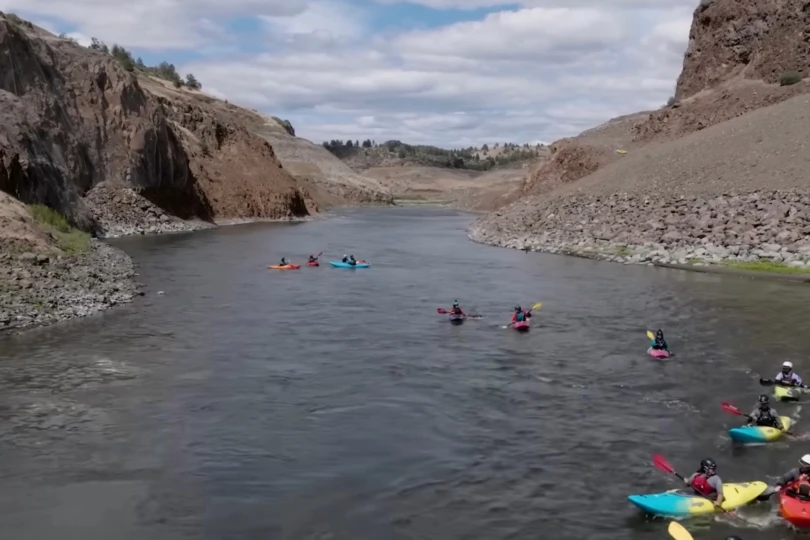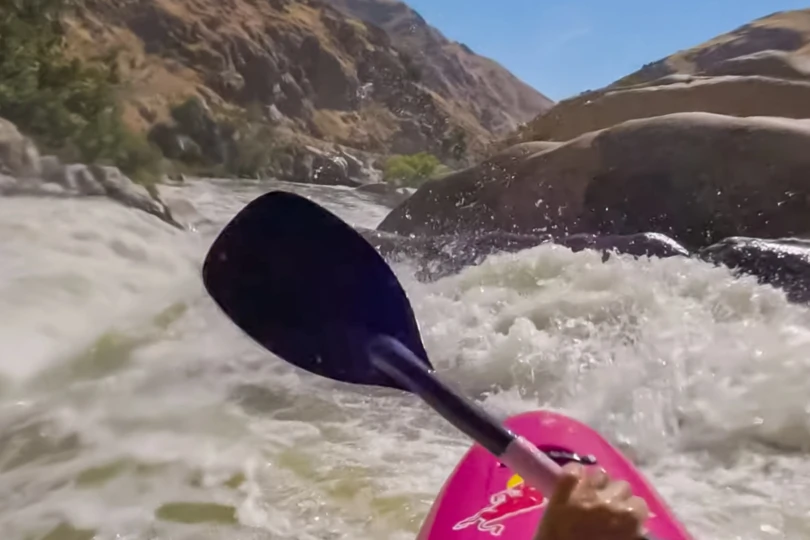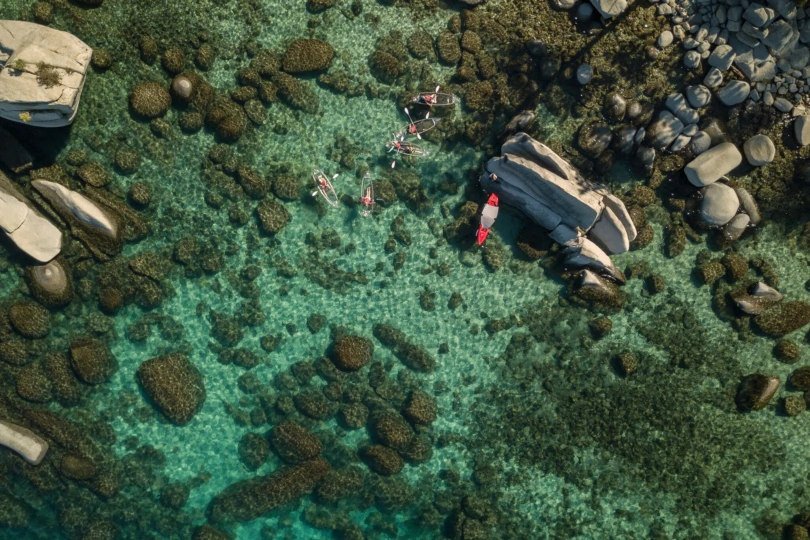Whether you’re surfing, swimming, or paddling, we’ve got you covered. From the tropics to the tundra, with everything from our favorite rashguard to an ultra-thick 6mm option perfect for seeking out arctic A-frames.
Below, you’ll find a couple of tried-and-true limestone neoprene options, plus alternatives that are pushing the limits of both sustainability and performance. For the eco-minded surfer, more and more sustainably sourced wetsuits are finally performing on par with their traditional competitors. There’s never been a better time to shop for wetsuits than 2023.
Long story short? We’re here to help you gear up for your local break, your dream surf trip, and beyond. If you’re looking to skip right to a specific wetsuit, here’s what we’ve got on the clothesline.
Best New Wetsuits of 2023
- Best Overall: Dakine Cyclone 3/2
- A limestone neoprene chest-zip suit that’s durable, comfortable, and warm, this is a well-executed iteration of a classic. Pair with the Dakine Cyclone Split Toe 5/4 booties while you’re at it.
- Best Value: Crooked 4/3
- An affordable limestone neoprene option from a New England newcomer that aims to keep branding B.S. and price to a minimum. Perfect for bargain hunters who are also barrel hunters.
- Best Overall Neoprene Alternative: Patagonia R3 (4.5/3.5)
- Patagonia’s Yulex line is the gold standard for sustainable wetsuits, and we’ve used the latest iteration for a couple of seasons now. It’s durable, warm, and the best all-around version of Yulex we’ve seen yet.
- Best Value Neoprene Alternative: Picture Organic Equation 4/3
- A stretchy, comfortable option from French apparel maker Picture Organic, this suit is stitched from Eicoprene, Picture’s blend of limestone neoprene, recycled tires, and oyster shells.
- Best for Arctic Conditions: Norrøna Unstad
- A hooded wetsuit from a storied Norse brand, Norrøna crafts the Unstad from Naturaprene, sourced from Asian rubber trees. With 6mm thick Naturaprene in the torso, this beefy suit is built to surf Scandinavia and withstand arctic gales.
- Best Sustainable for Stretch: Billabong Furnace Natural 3/2
- So stretchy, you won’t believe it’s sustainable. Billabong’s high-performance, high-stretch version of a Yulex suit, the Furnace Natural will speak to surfers who care as much about wetsuit pliability as they do the planet.
- Bonus! Best Rashguard: Florence Marine X Hooded Rashguard
- This isn’t a wetsuit — although John John Florence’s company does custom-make premium wetsuits to order. This other Florence creation is our favorite rashguard for warm-water surf trips.
6 Best New Wetsuits of 2023
Best Overall: Dakine Cyclone 3/2
- Type: 3/2 mm
- Materials: 80% neoprene, 15% nylon, 5% polyester
- Zipper type: Chest
- Lined: Yes
- Seams: Sealed and taped
- Sizes available: XS-2XL (short and tall sizes available)
Pros
- Extremely warm
- One of the most comfortable, thanks to a soft and stretchy liner
- Great seams (no flushing)
Cons
- Heavier than other suits
- Made from limestone neoprene (less harmful than petroleum-sourced neoprene but still less environmentally friendly than alternatives)
Best Value: Crooked 4/3
- Type: 4/3 mm
- Materials: Japanese Yamamoto neoprene
- Zipper type: Chest
- Seams: 100% glued, blind stitched, and internally taped (two-seam cuff at wrists)
- Lined: Yes
- Sizes available: XS-XL (short and tall sizes available)
Pros
- Designed for cold-water surfers
- High-quality rubber and construction kept our team toasty
- No frills, affordable
- Tasteful design touches
Cons
- Not made from sustainable materials
Best Overall Neoprene Alternative: Patagonia R3
- Type: 4.5/3.5 mm
- Materials: 85% Yulex FSC-certified natural rubber, 15% synthetic rubber by polymer content
- Zipper type: Chest
- Lined: Yes
- Seams: 100% sealed and taped
- Sizes available: XS-2XL (short and tall sizes available)
Pros
- Made with a high-performance, eco-friendly alternative to neoprene
- Impressive durability
- Versatile "middle-ground" wetsuit thickness
Cons
- Pricey
- Not super stretchy
Best Value Neoprene Alternative: Picture Organic Equation 4/3
- Type: 4/3 mm
- Materials: 80% Eicoprene, 15% recycled polyamide, 5% recycled polyester
- Zipper type: Chest
- Seams: 100% taped and sealed with solvent-free glue
- Lined: Yes
- Sizes available: S-XL (tall sizes available)
Pros
- Stretchy and comfortable
- Padded chest can reduce chances of sore ribs, wetsuit also incorporates knee pads for comfort
- Affordable
Cons
- Eicoprene isn't as environmentally friendly as purely plant-based alternatives, and didn't perform as strongly as other neoprene-alternatives
Best for Arctic & Cold Conditions: Norrøna Unstad
- Type: 5.5/5/4 mm (but uses zoned thicknesses from 3 up to 6 mm)
- Materials: 85% Yulex FSC-certified neoprene-free natural rubber, 15% synthetic rubber
- Zipper type: Chest
- Lined: Yes (solution-dyed 95% polyester w/ 51% recycled content, 5% spandex)
- Seams: Sealed with solvent-free glue
- Sizes: XS-XL
Pros
- Ultra-thick and ultra-warm
- Paneling supplies impressive mobility
- Made from Naturaprene (more sustainable than neoprene)
Cons
- Not as stretchy or lightweight as other suits
- Limited sizes
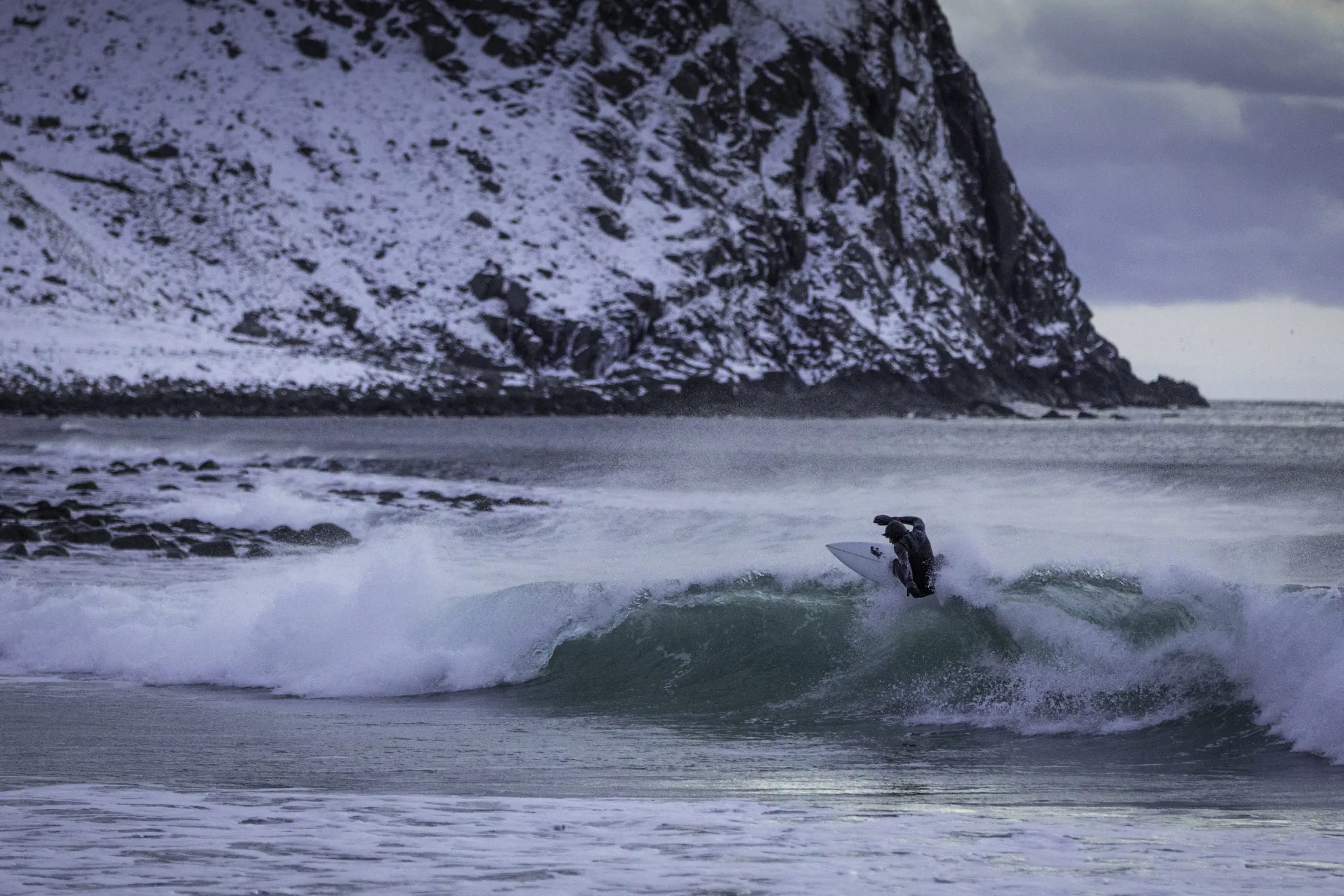
Best Sustainable for Stretch: Billabong Furnace Natural 3/2
- Type: 3/2 mm or 4/3 mm
- Materials: 85% new formulation FSC-certified natural rubber, 15% synthetic; graphene liner
- Zipper type: None
- Seams: 100% taped seams, water-based solvent-free glue
- Lined: Yes
- Sizes available: S-2XL
Pros
- The stretchiest sustainable suit we’ve tested
- Made with Yulex natural rubber and recycled content
- Great fit
Cons
- We wish it was warmer
Bonus! Best Rashguard: Florence Marine X Hooded Rashguard
How We Tested
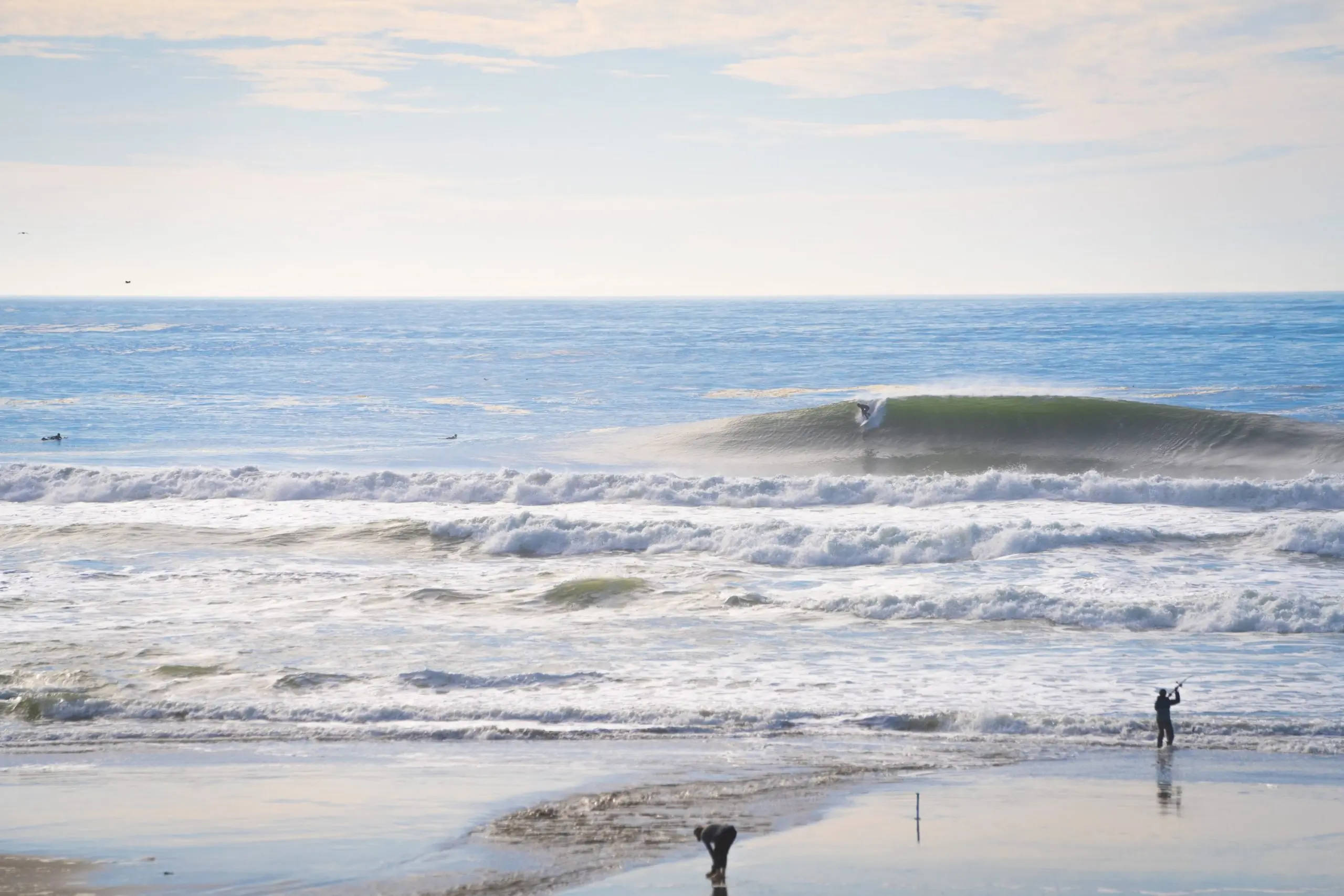



GearJunkie’s staff and contributors are constantly testing and researching wetsuits. This article includes relatively new wetsuits, some of which we got our hands on just a few months ago, while others we’ve been testing for years. We focused on sustainably built wetsuits, and either current or new models for 2023.
Our wetsuit testers range in skill from beginner to advanced. When possible, we try to have multiple testers try the same wetsuit in order to gather various perspectives. We mostly surfed during our test, but we also swam and wake-surfed. Most testing went down in California between San Francisco and Santa Cruz, with San Francisco’s Ocean Beach being our main stomping grounds (one of our testers lives blocks away from the notorious beach break). We also tested gear as far south as Sayulita, Mexico, as far north as Tofino, Canada, and as far east as Martha’s Vineyard.
The coldest water we surfed in this year? A few icy wind swells in Lake Tahoe definitely mimicked “arctic” level cold.

